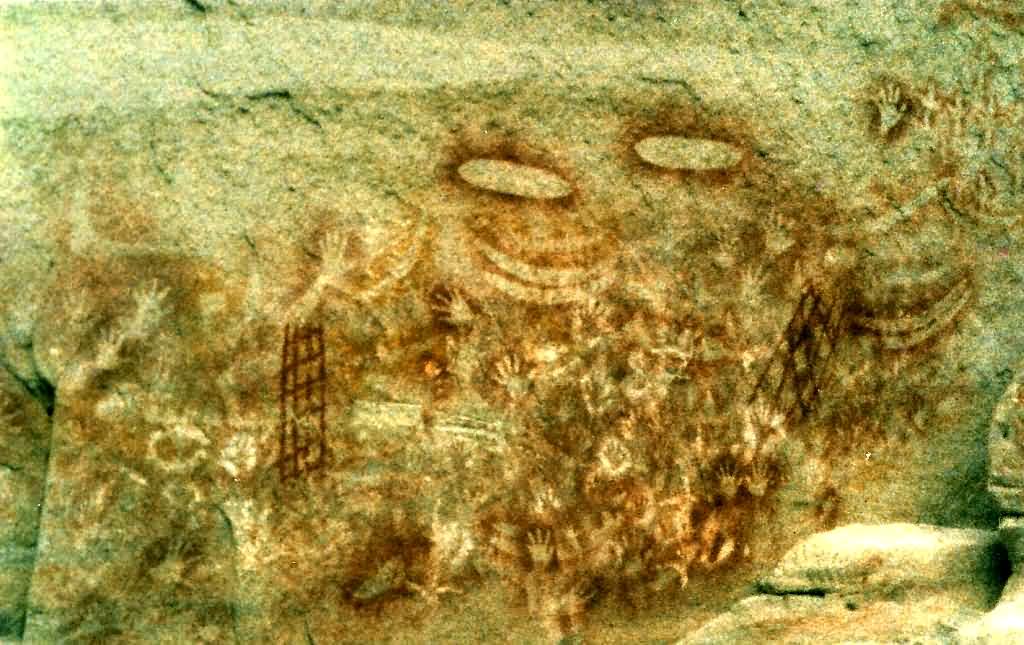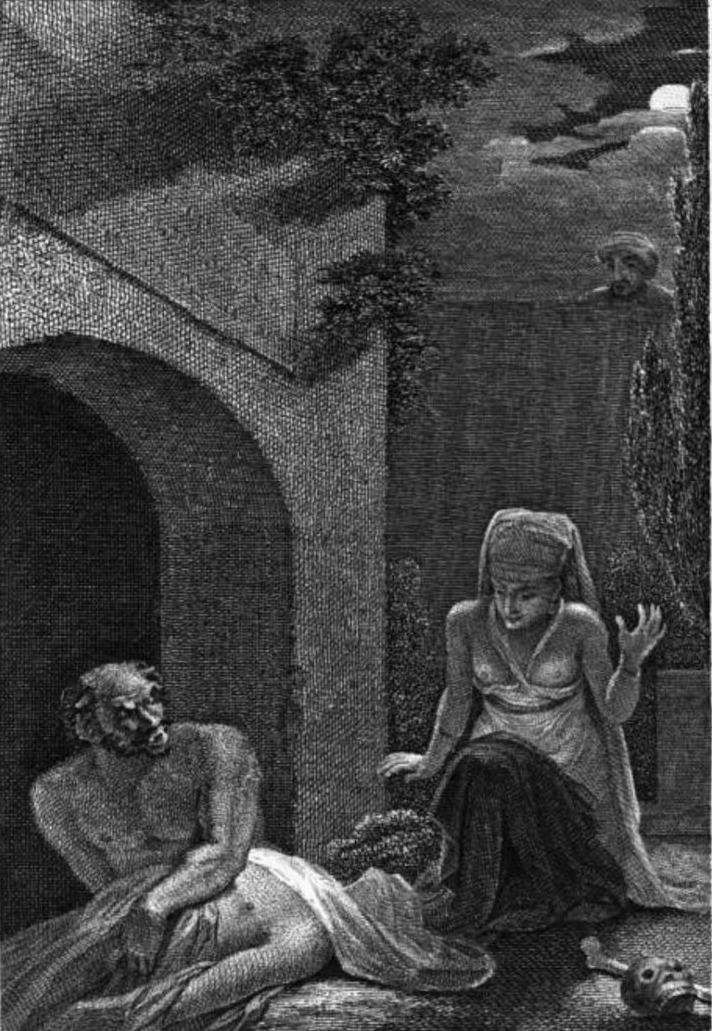|
Natasha Wanganeen
Natasha Wanganeen (born 20 June 1984) is an Aboriginal Australian actress. She is known for her starring role in the 2002 feature film '' Rabbit-Proof Fence'' and numerous television roles. She made her debut as co-writer and co-producer in a 2022 short film, an Indigenous sci-fi drama entitled ''Bunker: The Last Fleet'', about an alien invasion of Australia. She also played the lead in the film. Early life Wanganeen was born in Point Pearce, South Australia, moving to Port Adelaide when she was five years old. She is a Ngarrindjeri, Narungga, Kaurna and Noongar woman. Career Wanganeen appeared in '' Rabbit-Proof Fence'' (released 2002), playing a dormitory boss at the age of 15, and the made-for-TV film '' Jessica'' directed by Peter Andrikidis and released in 2004. In 2017, she starred as a zombie-killer in the dystopian thriller ''Cargo''. Also in 2017, she played the role of Gilyagan in Kate Grenville's play ''The Secret River'' presented during the Adelaide Festiv ... [...More Info...] [...Related Items...] OR: [Wikipedia] [Google] [Baidu] |
Point Pearce, South Australia
Point Pearce, also spelt Point Pierce in the past, is a town in the Australia, Australian state of South Australia. The town is located in the Yorke Peninsula Council local government area, north-west of the state capital, Adelaide. It is known for the mission station, mission established for Aboriginal Australians, Aboriginal people in the late nineteenth century. The location was originally known as Bookooyanna by the local Narungga people, later spelt Bukkiyana or Burgiyana. Established as Point Pearce Mission Station in 1868, it became the Point Pearce Aboriginal Station after it was taken over by the South Australian Government, state government in 1915, as an Aboriginal reserve. In 1972, ownership was transferred to the Point Pearce Community Council under the ''Aboriginal Lands Trust Act 1966''. History Also known as Point Pierce, it was one of several missions established in South Australia in the late 19th century, which included Poonindie (1850), Point McLeay (Raukk ... [...More Info...] [...Related Items...] OR: [Wikipedia] [Google] [Baidu] |
Dystopian
A dystopia (lit. "bad place") is an imagined world or society in which people lead wretched, dehumanized, fearful lives. It is an imagined place (possibly state) in which everything is unpleasant or bad, typically a totalitarian or environmentally degraded one. Dystopia is widely seen as the opposite of utopia – a concept coined by Thomas More in 1516 to describe an ideal society. Both ''topias'' are common topics in fiction. Dystopia is also referred to as cacotopia, or anti-utopia. Dystopias are often characterized by fear or distress, tyrannical governments, environmental disaster, or other characteristics associated with a cataclysmic decline in society. Themes typical of a dystopian society include: complete control over the people in a society through the use propaganda and police state tactics, heavy censorship of information or denial of free thought, worship of an unattainable goal, the complete loss of individuality, and heavy enforcement of conformity ... [...More Info...] [...Related Items...] OR: [Wikipedia] [Google] [Baidu] |
Adelaide Film Festival
The Adelaide Film Festival (AFF, formerly ADLFF) is a film festival usually held for two weeks in mid-October in movie theater, cinemas in Adelaide, South Australia. Originally presented wikt:Special:Search/biennial, biennially in March from 2003, since 2013 AFF has been held in October. Subject to funding, the festival has staged full or briefer events in alternating years; some form of event has taken place every year since 2015. From 2022 it takes place annually. It has a strong focus on local South Australian and Cinema of Australia, Australian produced content, with the Adelaide Film Festival Investment Fund (AFFIF) established to fund investment in Australian films. Established in 2003 as Adelaide International Film Festival, it dropped "International" from its title after the inaugural edition, as it dropped its FIAPF membership the following year. It was, however, the first film festival in Australia to introduce an international competition, as well as being the first ... [...More Info...] [...Related Items...] OR: [Wikipedia] [Google] [Baidu] |
Jury (competition)
A juried competition is a competition in which participants' work is judged by a person or panel of persons convened specifically to judge the participants' efforts. The jury may be referred to as a competition jury or awards jury, and usually presents awards based on specific criteria for the competition. Usage The phrase "juried competition" is usually used to describe creative contests: artistic and literary competitions rather than sports tournaments or academic and scholarship competitions, although such competitions have similarities. Generally, juried competitions are contests that individuals actively enter to compete for prizes, rather than events in which the competitors are passively nominated by others, such as the Academy Awards or the Turner Prize. The Guggenheim Fellowship is an example of an award which straddles the line between a scholarship contest and a juried art competition. The phrase 'juried competition' is also applied to non-fine-arts contests which yet ... [...More Info...] [...Related Items...] OR: [Wikipedia] [Google] [Baidu] |
South Australian Film Corporation
South Australian Film Corporation (SAFC) is a South Australian Government statutory corporation established in 1972 to engage in film production and promote the film industry, located in Adelaide, South Australia. The Adelaide Studios are managed by the South Australian Film Corporation for the use of the South Australian film industry. History 1972–2000 The South Australian Film Corporation was founded as a production company in 1972, established under the ''South Australian Film Corporation Act'' by the Dunstan government. It was intended “to stimulate and encourage the formation and continued development of the South Australian film and television industry”. At the time of the Corporation's establishment, the Australian film industry was stagnating, and the Corporation played a significant role in the revival of Australian film making. Premier Don Dunstan played an instrumental role in the foundation of the Corporation and its early film production activities.David St ... [...More Info...] [...Related Items...] OR: [Wikipedia] [Google] [Baidu] |
Screen Australia
Screen Australia is the Australian Federal Government's key funding body for the Australian screen production industry, created under the ''Screen Australia Act 2008''. From 1 July 2008 Screen Australia took over the functions of its predecessor agencies the Australian Film Commission (AFC), the Film Finance Corporation Australia and Film Australia Limited. Screen Australia supports the development, production, promotion and distribution of Australian narrative and documentary screen content. History The Commonwealth ''Screen Australia Act 2008'' provides detailed information about the specific functions and powers of Screen Australia. Under this act, from 1 July 2008 the Australian Film Commission, the Film Finance Corporation Australia and Film Australia Limited were merged into one body, to be known as Screen Australia. New Zealand television and film executive Ruth Harley was appointed the inaugural chief executive officer, handing over to Graeme Mason at the end of he ... [...More Info...] [...Related Items...] OR: [Wikipedia] [Google] [Baidu] |
Dreamtime
The Dreaming, also referred to as Dreamtime, is a term devised by early anthropologists to refer to a religio-cultural worldview attributed to Australian Aboriginal religion and mythology, Australian Aboriginal mythology. It was originally used by Francis James Gillen, Francis Gillen, quickly adopted by his colleague Walter Baldwin Spencer, and thereafter popularised by A. P. Elkin, who later revised his views. The Dreaming is used to represent Aboriginal concepts of "Everywhen", during which the land was inhabited by ancestral figures, often of heroic proportions or with supernatural abilities. The term is based on a rendition of the Arandic languages, Arandic word , used by the Aranda people, Aranda (Arunta, Arrernte) people of Central Australia, although it has been argued that it is based on a misunderstanding or mistranslation. Some scholars suggest that the word's meaning is closer to "Eternity, eternal, uncreated". Anthropologist William Edward Hanley Stanner, William ... [...More Info...] [...Related Items...] OR: [Wikipedia] [Google] [Baidu] |
Aboriginal Australian Mythology
Australian Aboriginal religion and mythology is the sacred spirituality represented in the stories performed by Aboriginal Australians within each of the language groups across Australia in their ceremonies. Aboriginal spirituality includes the Dreamtime (''the Dreaming''), songlines, and Aboriginal oral literature. Aboriginal spirituality often conveys descriptions of each group's local cultural landscape, adding meaning to the whole country's topography from oral history told by ancestors from some of the earliest recorded history. Most of these spiritualities belong to specific groups, but some span the whole continent in one form or another. Antiquity An Australian linguist, R. M. W. Dixon, recording Aboriginal myths in their original languages, encountered coincidences between some of the landscape details being told about within various myths, and scientific discoveries being made about the same landscapes. In the case of the Atherton Tableland, myths tell of the or ... [...More Info...] [...Related Items...] OR: [Wikipedia] [Google] [Baidu] |
Dark Place (2019 Film)
''Dark Place'' is a 2019 Australian horror anthology film. The shorts in the film were written and directed by Indigenous filmmakers Kodie Bedford, Perun Bonser, Rob Braslin, Liam Phillips, and Bjorn Stewart. All five shorts centre on Aboriginal peoples and the long-reaching impact of colonialism in Australia. Synopsis "Scout" (Kodie Bedford) A group of Indigenous women have been kidnapped and forcibly sex-trafficked, however it seems like their captors may have darker plans for them. The women must try to not only escape, but also get their revenge against their white captors. "Foe" (Liam Phillips) After a tragic event upsets her life, Eleanor begins to experience strange sleeping habits. She decides to record her sleeping patterns, but begins to notice something even stranger happening. "Vale Light" (Rob Braslin) Forced to move after their last place caught on fire, Shae and her daughter Isabelle find themselves creeped out by their new neighbour Diane. While Diane ... [...More Info...] [...Related Items...] OR: [Wikipedia] [Google] [Baidu] |
Ghoul
In folklore, a ghoul (from , ') is a demon-like being or monstrous humanoid, often associated with graveyards and the consumption of human flesh. In the legends or tales in which they appear, a ghoul is far more ill-mannered and foul than goblins. The concept of the ghoul originated in pre-Islamic Arabian religion. Modern fiction often uses the term to label a specific kind of monster. By extension, the word "ghoul" is also used in a derogatory sense to refer to a person who delights in the macabre or whose occupation directly involves death, such as a gravedigger or graverobber. Etymology The English word ''ghoul'' is from the Arabic (), from () ."Ghoul, N." ''Oxford English Dictionary'', Oxford UP, December 2024, https://doi.org/10.1093/OED/2239227052. The term was first used in English literature in 1786 in William Beckford's Orientalist novel '' Vathek'', which describes the of Arabic folklore. This definition of the ghoul has persisted into modern times, wit ... [...More Info...] [...Related Items...] OR: [Wikipedia] [Google] [Baidu] |
Adelaide Festival
The Adelaide Festival of Arts, also known as the Adelaide Festival, an arts festival, takes place in the South Australian capital of Adelaide in March each year. Started in 1960, it is a major celebration of the arts and a significant cultural event in Australia. The festival is based chiefly in the Adelaide city centre, city centre and its Adelaide Park Lands, parklands, with some venues in the inner suburbs (such as the Odeon Theatre, Norwood) or occasionally further afield. The Adelaide Festival Centre and River Torrens usually form the nucleus of the event, and in the 21st century Elder Park, Adelaide, Elder Park has played host to opening ceremonies. It comprises many events, usually including opera, theatre, dance, List of classical and art music traditions, classical and contemporary music, cabaret, literature, visual art and new media. The four-day world-music event, WOMADelaide, and the literary festival, Adelaide Writers' Week, form part of the Festival. The festival ... [...More Info...] [...Related Items...] OR: [Wikipedia] [Google] [Baidu] |



